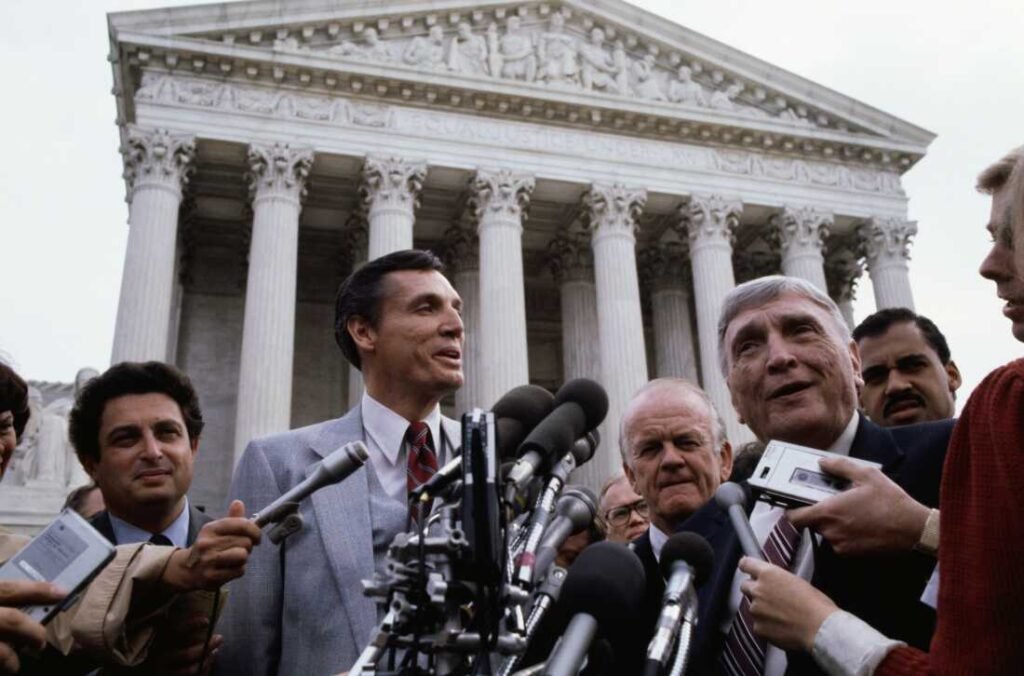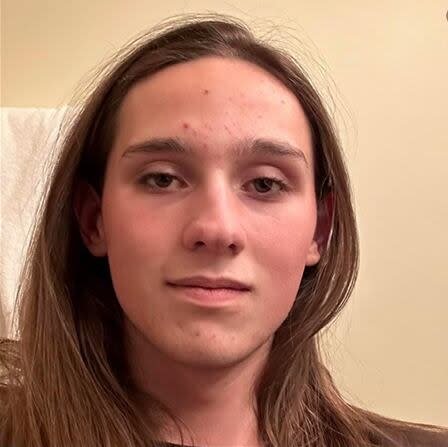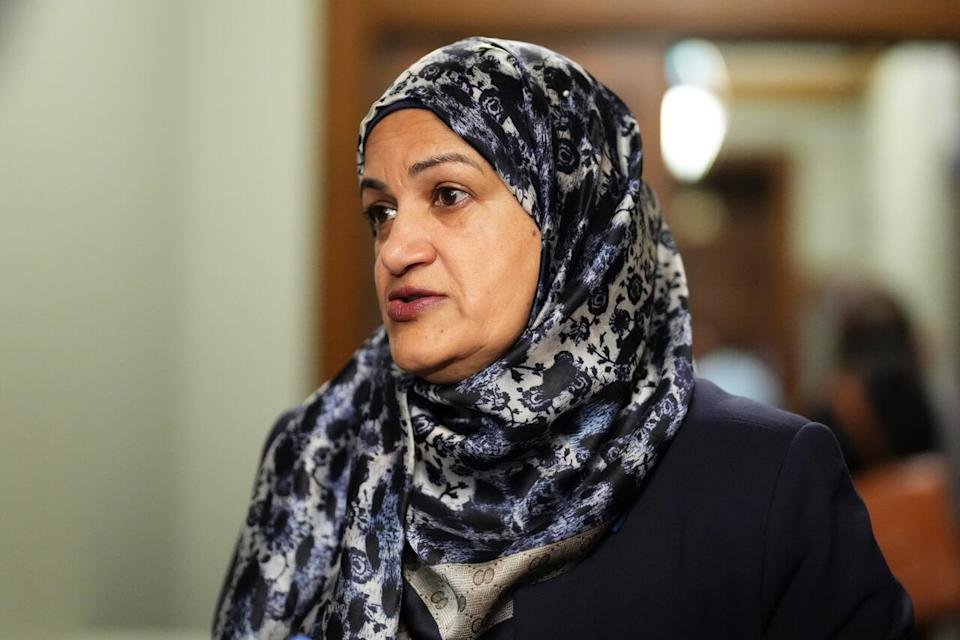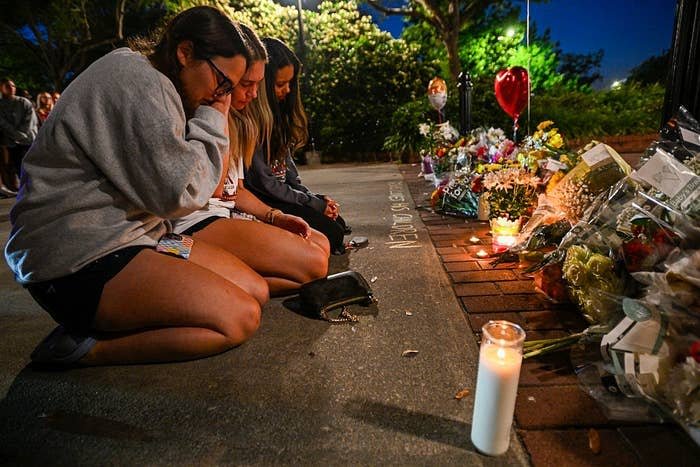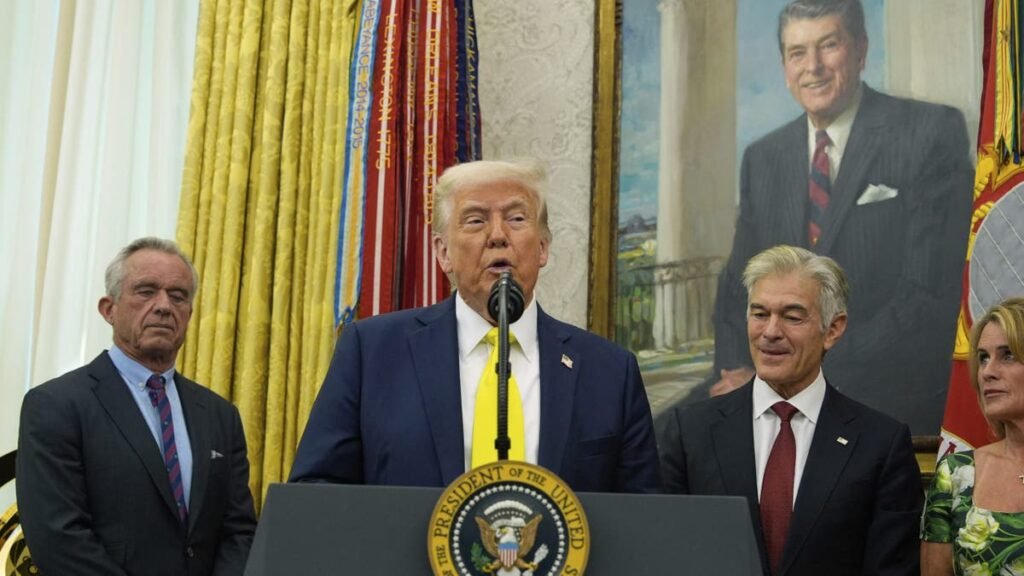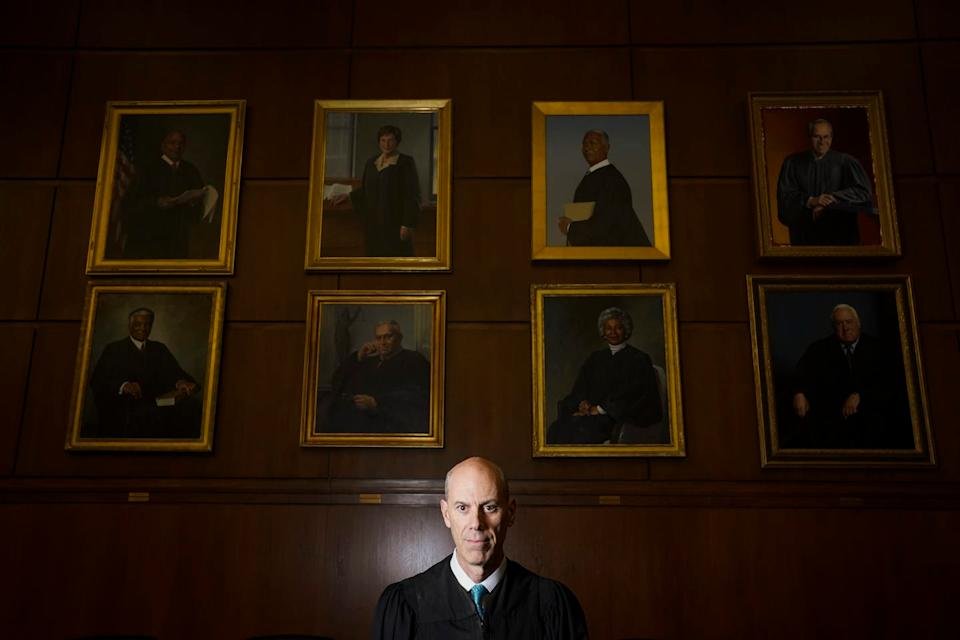CNN
—
Harvard University is such a perfect foil for Trumpism that it’s a wonder it avoided the MAGA maelstrom for so long.
But the nation’s oldest university is now going head-to-head with a White House that sees few limits on its power, which it wants to use to shatter elite societal pillars.
Harvard President Alan Garber decided not to bend to administration demands to change its policies, declaring that the university would not “surrender its independence or its constitutional rights.” A university more used to producing presidents than defying them thus set off one of the most important clashes yet between President Donald Trump and an establishment institution.
Those without an Ivy League pedigree often mock the snobbery of the country’s most prestigious seats of learning, whose degrees open elite circles off-limits to most Americans.
And when Trump portrays the esteemed academics of Cambridge, Massachusetts, as far-left activists pushing “woke” policies on race and gender, he’s not working in a vacuum. Millions of Americans agree with him. Polls show rising distrust of higher education institutions, especially among Republicans.
But Trump’s assault on the country’s top colleges goes beyond an issue that will excite his political base.
Administration heat on top universities is part of a broader effort to challenge centers of what it regards as liberal power, which also include the courts, the federal bureaucracy and the media. After remaking the Republican Party and the Supreme Court, Trump hopes to extend his populist ideology to higher education as a way to challenge belief systems that conflict with his MAGA creed and to shift the country hard to the right.
Trump is not only taking on top academics and what surveys show are their left-leaning faculties. His immigration crackdown has stirred a culture of fear on campuses: Some students have been taken off the streets by border agents, while hundreds more have had their visas canceled on the grounds that their views are damaging to American foreign policy interests.
That sense of repression threatens to stifle the atmosphere of open debate that animates a healthy university. And Trump’s threats to halt funding for top schools endangers the country’s world-leading scientific and medical research into killer diseases such as cancer and Alzheimer’s.
White House demands go far beyond antisemitism complaints
Academics are often accused of living in an isolated bubble.
This was driven home in December 2023, when New York Rep. Elise Stefanik skewered the presidents of top universities over campus protests that critics say degenerated into antisemitism following the Hamas attacks on Israel. The academics’ nuanced answers might have passed muster in a campus seminar, but they turned into a political catastrophe.
The moral outrage of Stefanik, a Harvard graduate, helped lead to the resignation of the university’s president Claudine Gay. The New York lawmaker’s performances also made her one of the fastest-rising stars in the MAGA movement and the House GOP leadership.
Stefanik led the charge against Harvard again on Tuesday after the administration froze $2.2 billion in federal funds when the university refused its demands. “If you look at the faculty, the tenured faculty of all these schools, they are so out of touch with American values. Ninety-seven percent of the faculty are self-identified Democrats, progressives. They are propping up these radical, far-left ideas and really teaching anti-Americanism,” Stefanik said on Fox News.
The administration has used the antisemitism charges to fuel both its wider assault on the universities and its mass deportation drive.
It demanded that Harvard commission an outside party to audit multiple programs, schools and departments within the university that it said were tainted by egregious records of antisemitism or other bias.
But its stunning list of demands doesn’t end there. It called for an end to all diversity, equity and inclusion programs, including reductions in the power of the faculty; ending any hiring based on race, religion or sex; and new crackdowns on student protests and student groups and clubs, including those that support Palestinian sovereignty – a longtime, if lapsed, US government policy. And the White House demanded investigations into past campus protests and sit-ins that took place in the aftermath of the Hamas attacks on Israel.
The wish list represented an unusual attempt by a presidential administration to exert power over an independent university. The showdown, which follows agreement by other universities – including Columbia – to cede to similar pressure, is almost certain to land in the courts.
But Lawrence Summers, the former Treasury secretary and Harvard president, told CNN that the university should not comply with a government that is being “extra-lawful.” He added: “Universities are in need of a great deal of reform, and it’s come too slowly, but that’s not a reason why the government can entirely suspend the law and make up self-serving political demands and impose them on universities.”
Trump may believe he’s onto a political winner whatever happens.
When universities cave, fearful of losing billions of dollars in public funding, his power is enhanced – and he can pile on even more pressure. When they defend themselves, they give him a fight he’s happy to wage. And when Democrats criticize him, they take the side of what millions of Americans believe are elitist establishment figures who are disliked by much of the country.
Disdain for top universities runs deep in the MAGA movement – perhaps mostly among Ivy Leaguers like Stefanik and Vice President JD Vance, who often appear to be seeking to atone to their base for their own elite educations.
This populist backlash against establishment institutions is at the root of the MAGA movement and “America first” conservativism, along with a belief that liberal faculties are responsible for propagating a belief system that is anti-American.
For instance, at a National Conservatism Conference in 2021, Vance, a Yale Law School graduate, advocated a campaign against “very hostile institutions” and added, “If any of us want to do the things we want to do for our country and the people who live in it – we have to honestly and aggressively attack the universities in this country.”
On the campaign trail last year, Trump lambasted universities he claimed were packed with “Marxist maniacs.”And the president’s movement has long fostered suspicion of academic intellectualism and a distrust of the highly educated, which was exacerbated by his attack on experts during the Covid-19 pandemic in his first term and which now shows in his unorthodox second-term Cabinet.
This highly politicized approach leaves little doubt that the administration’s motives go far beyond eradicating antisemitism from college campuses.
“It’s a transparent effort to change what is taught, what we say in our classrooms, what we teach our students, to make sure that the only things that are actually said on university campuses are things that the Trump administration wants to hear and wants to be said,” Andrew Manuel Crespo, a Harvard Law School professor, told CNN’s Kaitlan Collins on Monday.
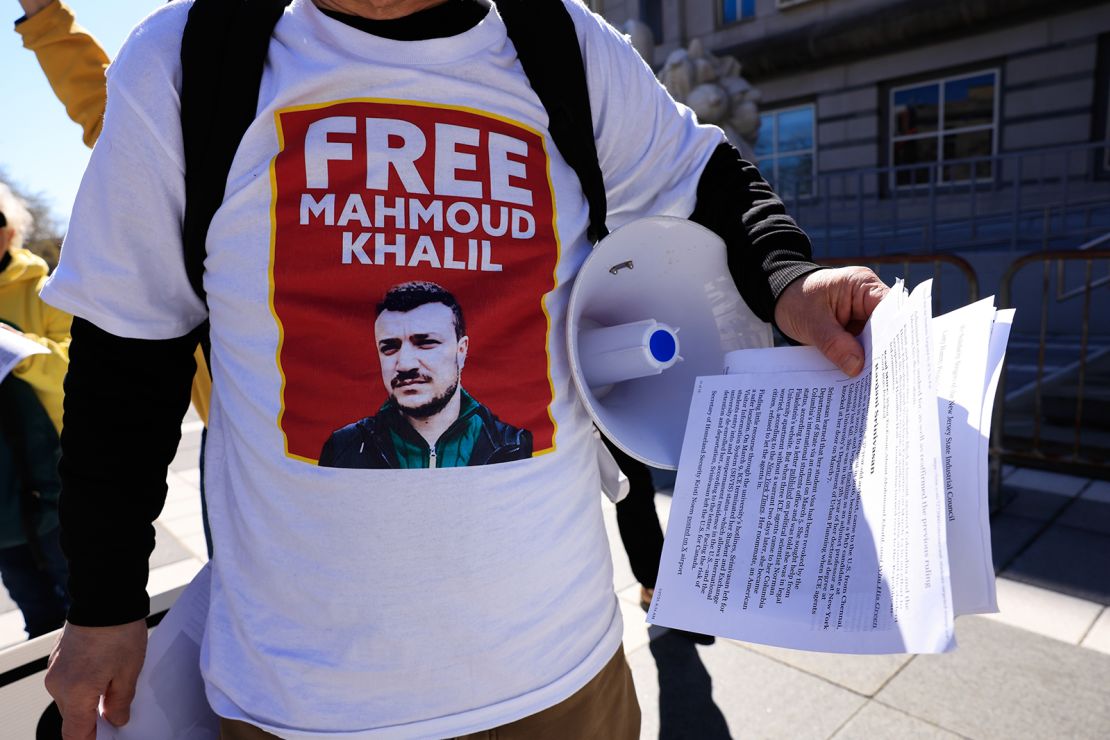
The administration’s heavy-handed immigration enforcement has also fueled a repressive atmosphere on campuses following the detention of several students who took part in campus protests against Israel and some who did not.
The Trump administration last week won a deportation order from a Louisiana immigration judge against Columbia University graduate Mahmoud Khalil, a legal permanent resident. He was accused of undermining US policy to combat antisemitism, but the government cited no allegations of criminal activity. Khalil, who is married to a US citizen, is a prominent Palestinian activist who played a central role in protests against Israel’s war in Gaza on campus last year
In another case, Tufts University student Rümeysa Öztürk was detained last month by masked officers near Somerville, Massachusetts. She told a federal judge Monday she was unconstitutionally arrested and subjected to “unsanitary, unsafe and inhumane” conditions in a Louisiana immigration facility. The government has accused her of activities “in support of Hamas” but the Washington Post reported a State Department office failed to find evidence tying her to antisemitism or terrorism.
This week, a Palestinian student at Columbia University went into a Vermont immigration office for his citizenship interview. But the student, Mohsen Mahdawi – who’s been in the United States for a decade – was taken away in handcuffs. His attorney told CNN that he was detained “in direct retaliation for his advocacy on behalf of Palestinians and because of his identity as a Palestinian.”
Ranjani Srinivasan, another Columbia University student, fled to Canada after she got an email about her student visa being canceled and federal agents came to her door. She told CNN’s Shimon Prokupecz that she’d simply been caught up in a police cordon near an anti-Israel protest as she tried to walk home.
Lawyers and civil rights campaigners warn that these cases, and many others, are symptomatic of an administration that disdains the law and free speech.
Sarah Paoletti, a professor and director of the Transnational Legal Clinic at the University of Pennsylvania’s Carey Law School, warned of imperiled “due process and other fundamental and constitutional rights.”
Paoletti added: “It’s also having the effect of silencing and instilling a tremendous amount of fear. And there’s an intentionality behind that. Many within this administration have long been proponents of this notion of ‘make it bad enough that people will self deport, save us the effort and the money.’ And you see that through these actions, where the underlying message is, ‘if you don’t self deport, these are the consequences.”
The targeting of universities may also stifle the freewheeling essence of American higher education, according to Jameel Jaffer, executive director of the Knight First Amendment Institute at Columbia University.
“People come from all over the world to study at American universities, in part because there are other people from all over the world there … You get to hear from people with extremely different experiences, life experiences and perspectives and political views, religious views. You know, that’s what makes American universities great,” Jaffer told CNN’s Audie Cornish in an interview for her podcast “The Assignment.”
“But if the non-citizens are intimidated from speaking out or participating in public discourse, that has a cost not just to them, but to the rest of us.”

